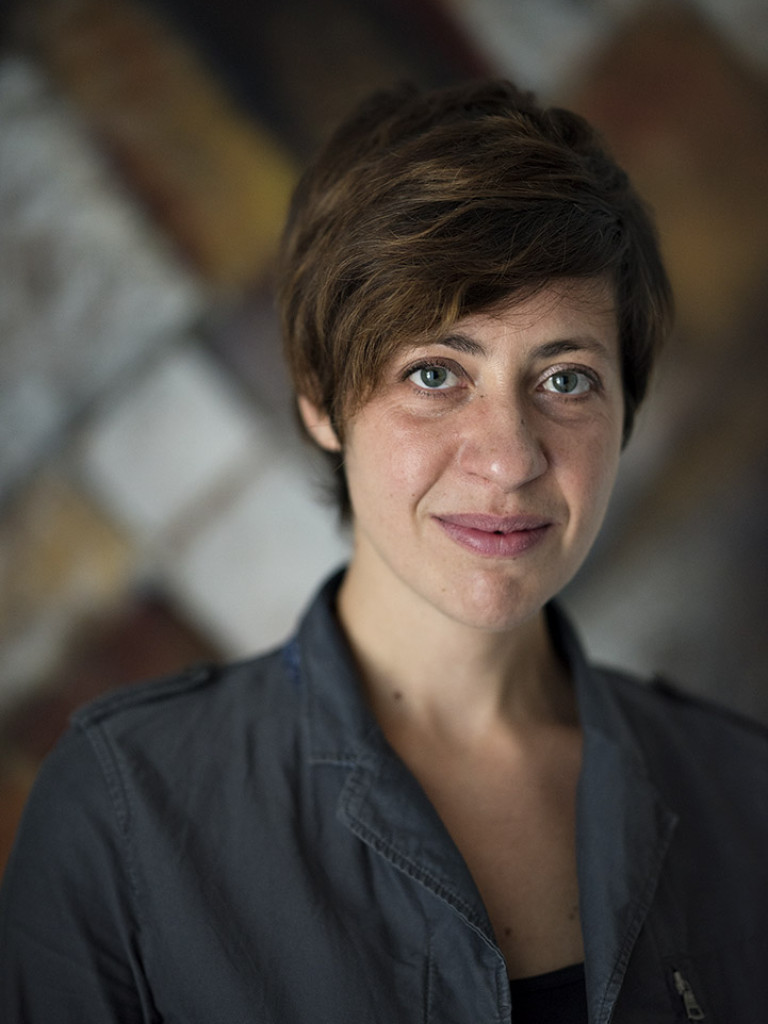
Irene Caselli
- 2018
- Press Fellow
Irene Caselli is a freelance multimedia journalist reporting for the BBC, The Washington Post, and The Guardian, among others. She is a contributing editor for Index on Censorship magazine. After a decade in Latin America, she is now based in her home-country Italy. She has been awarded fellowships by the IWMF, the European Journalism Centre and the Dart Center for Journalism and Trauma. She is on the advisory board of Outriders, a Poland-based storytelling start-up. She studies creative writing, with a focus on children's literature. 1. Why did you choose to become a science journalist? I am not a science journalist, but science, in its many forms and shapes, has slowly become a constant in my work. My passion for journalism has led me to covering science: I love researching topics and translating that acquired knowledge into information that can be easily understood by the public. Over a decade and a half of reporting, I have covered many aspects of science, in particular health, the environment and technology. More recently, thanks to a fellowship by the Dart Center for Journalism and Trauma at Columbia University, I have started focusing on epigenetics and Early Childhood Development, looking at how poverty and violence can have long-lasting effects, even at an intergenerational level. 2. What role do science and science communication play in your country? After a decade working in Latin America, I am back in Italy, my home country, at a crucial moment for science communication. Right now Italy is facing a wave of skepticism towards the medical community. Members of the current administration are trying to overturn a law approved in 2017 that made ten vaccinations obligatory for children. This legislation was deemed necessary because of a fast decrease in the coverage of certain diseases, especially measles, which presented a real danger to the protection of the entire population. In this context, quality communication plays a very important role in the fight against disinformation. 3. What are the main challenges of science journalism in your country? One of the main challenges in Italy nowadays is the the lack of trust in the media and the belief of non-scientific theories that are shared on blogs and social networks. Science journalists exist, but their work often reaches a limited number of people. There is also a brain drain within the scientific community, with many young researchers going abroad to find more stable job opportunities. 4. Where do you see the big societal transformations in the future? What scientific research/discovery will change our world? I think that migration and digital connections are changing the way we perceive the nation state and will slowly change the look and feel of entire societies. When it comes to science, I believe that renewable sources of energy will give more life to our planet, while genetics will give way to new personalised treatments (against cancer among others). The big challenge will be how to make these breakthrough technologies available to everyone around the world, not only to the richest. 5. What book, movie or song has radically changed your perspective? And why? My current top five (with a children literature's bonus track):
- Gabriel García Márquez's One Hundred Years of Solitude – This book's wild world make me travel fast and far every time I read it.
- Jhumpa Lahiri's Interpreter of Maladies – Most of Lahiri's work makes me feel at home in terms of my identity, giving me a sense of the importance of straddling different cultures and countries.
- Ben Lerner's Leaving the Atocha Station – This novel's use of poetic language made me realise that the mistakes one makes in a foreign language are a plus and not something to be ashamed of.
- Italo Calvino's The Path to the Spiders' Nests – This story made me think of the effects of war on the life of a child, and the importance of children's perspective in history.
- Jack Kerouac's On the Road – It installed in me a love for adventure and travel.
- Gianni Rodari's Nursery Rhymes in the Sky and on Earth – As a child, Rodari opened my eyes regarding the infinite creativity of language
- When it comes to science, Tracy Kidder's Mountains Beyond Mountains put a face to the idea of public health, detailing the life of Paul Farmer and his work on the ground in Haiti. Most recently, I was inspired by The Deepest Well by Nadine Burke Harris, who talks about how to break the cycle created by childhood adversity.